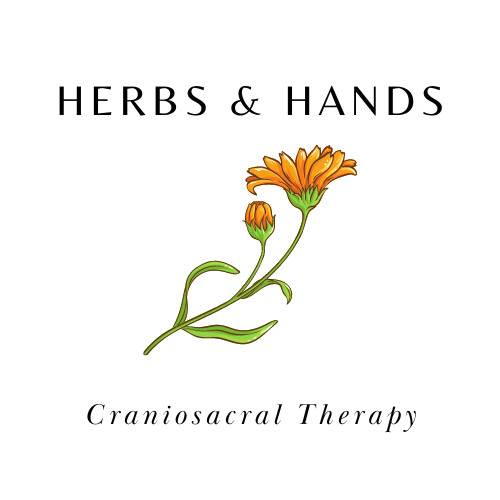
Articles by Dr. Currey
Herbs
Food
Care
Zinc & Health
During the pandemic, zinc, like vitamin D, has gotten a lot of attention. Zinc, without a doubt, is needed for optimal immune function. However, taking high doses leads to copper deficiency. Before you choose to take a zinc supplement, I hope you will join me in a look at our needs for zinc, food sources of zinc, and how to avoid trading one problem for another. We will also take a slight detour to investigate plant phytates and some easy things we can do in the kitchen to make plant minerals more absorbable.
Sodium & Health
Sodium: we know we should avoid too much, but why, exactly, and how much is too much? What about low sodium, is that a problem? This week, we will take a closer look at this essential mineral to understand what it does in our bodies and why we should pay attention to it.
Selenium & Health
Selenium is necessary for life and plays major roles in our body including our “reproduction, thyroid hormone metabolism, DNA synthesis, and protection from oxidative damage and infection.” Too little selenium is an issue in some areas of the world, but here in the U.S. we are more likely to be challenged by selenium toxicity in the form of over-supplementation. Let’s learn more!
Potassium & Health
Potassium: there is much more to this mineral than eating a banana! Potassium is one of our main electrolytes, acting as a partner with sodium to keep our nerves firing and sending information through our bodies. Low levels are associated with high blood pressure and heart disease, but a diet full of potassium rich fruits and vegetables can protect against these conditions.
Phosphorus & Health
Phosphorus is an abundant mineral that plays key roles in our physical structure from cell membranes to bones. This important nutrient is also a key player in our energy production; without it, we could not make ATP and our engines wouldn’t run. This all sounds great, but too much phosphorus can lead to heart and kidney disease, so we must take care. Let’s learn more about this interesting element shall we?
Molybdenum & Health
Molybdenum is another metallic mineral essential for human health. You may not have heard of it, and this is because molybdenum deficiency has never been documented in healthy individuals, and is extraordinarily rare besides. Current research is looking into the role molybdenum may play in cancer treatment and it is currently being used in the treatment of copper overload. Let’s learn a bit more shall we?
Manganese & Health
Is this a typo or a repeat of last week? Nope, manganese is a distinct nutrient despite having a name quite similar to magnesium. Let’s take a look at this nutrient that is found in multivitamins and is essential for health but is rarely talked about.
Iron & Health
Iron deficiency is quite common and can quickly lead to a decreased quality of life. Iron overload is also a problem that can do the same. Let’s take a moment to learn more about iron’s role in our bodies, where we can find it in our food, and when we might want to consider supplementation.
Iodine & Health
You have probably heard of iodized salt – salt that has had iodine added in – but do you know why iodine is added or where iodine comes from? Let’s explore these questions together. Along the way, we will learn a bit more about thyroids, who is at risk for iodine deficiency, what the research says about taking extra iodine, and how much iodine we need.
Calcium & Health
Calcium is the most abundant mineral in our body. We store most (~99%) of it in our bones and teeth as hydroxyapatite, a large molecule that combines calcium, phosphorus, and oxygen.
The remaining small amount circulates through our body. This circulating calcium plays many important roles, including constricting or relaxing our blood vessels, sending nerve impulses, contracting and relaxing our muscles, and releasing hormones like insulin when they are needed. Calcium even plays several key roles in our blood clotting along with Vitamin K!
Unfortunately, calcium is a nutrient of concern with a significant portion of our population not eating enough.
- Adaptogens
- alcohol
- Allergy
- B Vitamins
- b12
- Basil
- beans
- Blood pressure
- Burdock
- Calcium
- Calendula
- California Poppy
- Carbohydrates
- Cardamom
- Chamomile
- Chocolate
- chromium
- Cinnamon
- Comfrey
- copper
- Craniosacral Therapy
- Dandelion
- Detoxification
- Digestion
- Fiber
- Fire Cider
- Flavonoids
- Flax
- Folate
- Food as Medicine
- Foundations of Health
- Fruit
- Ginger
- Greens
- Hawthorn
- Healing What Ails You
- Herbal Formulations
- Herbal Medicine
- Immune
- Index
- Inflammation
- Iodine
- Iron
- Lemon balm
- Liver
- magnesium
- Manganese
- Marshmallow
- Mental Health
- minerals
- Minerals
- Molybdenum
- Naturopathic Medicine
- Nettle
- Nettles
- Niacin
- Nootropics
- Nutrition
- Oregano
- Pain
- Parsley
- Peppermint
- Philosophy of Care
- Potassium
- Poultice
- Protein
- Recipe
- Recipes
- Riboflavin
- Rose
- Rosemary
- Sage
- Seed Cycling
- Selenium
- Skin
- Sleep
- Sodium
- Sunshine
- Supplements
- Thiamin
- Thyme
- Thyroid
- Turmeric
- Vitamin A
- Vitamin D
- Vitamin E
- Vitamin K
- water
- Whole Grains
- Zinc













